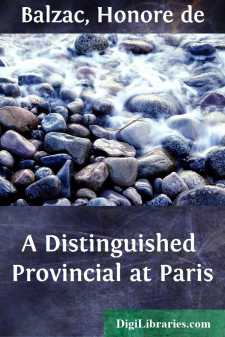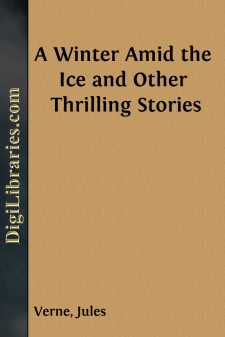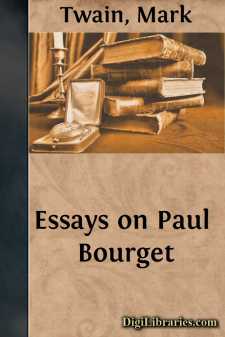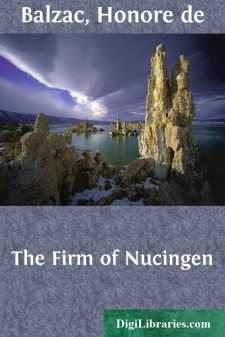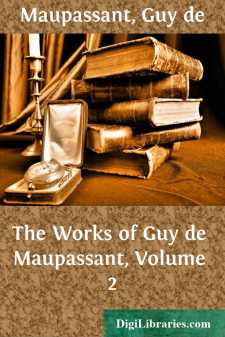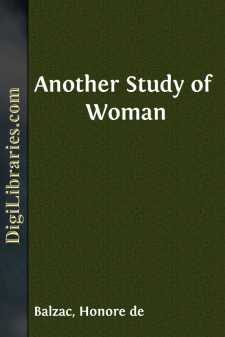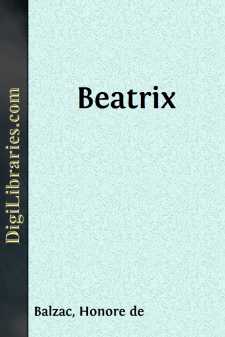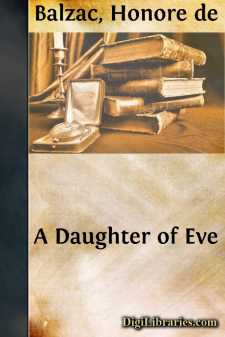Literary Collections
- American 84
- Ancient, Classical & Medieval 14
- Asian 1
- Australian & Oceanian 1
- Canadian 55
- Continental European
- English, Irish, Scottish, Welsh 179
- Essays 160
- General 24
- Letters 46
- Middle Eastern 1
Continental European Books
Sort by:
by:
Honore de Balzac
PART I Mme. de Bargeton and Lucien de Rubempre had left Angouleme behind, and were traveling together upon the road to Paris. Not one of the party who made that journey alluded to it afterwards; but it may be believed that an infatuated youth who had looked forward to the delights of an elopement, must have found the continual presence of Gentil, the man-servant, and Albertine, the maid, not a little...
more...
by:
Voltaire
The 18th of the Month Scheval, in the Year of the Hegira, 837. Thou Joy of ev’ry Eye! Thou Torment of every Heart! Thou Intellectual Light! I do not kiss the Dust of thy Feet; because thou seldom art seen out of the Seraglio, and when thou art, thou walkest only on the Carpets of Iran, or on Beds of Roses. I here present you with a Translation of the Work of an ancient Sage, who having the Happiness...
more...
by:
Jules Verne
CHAPTER I. HOW IT IS USELESS TO SEEK, EVEN ON THE BEST MAPS, FOR THE SMALL TOWN OF QUIQUENDONE. If you try to find, on any map of Flanders, ancient or modern, the small town of Quiquendone, probably you will not succeed. Is Quiquendone, then, one of those towns which have disappeared? No. A town of the future? By no means. It exists in spite of geographies, and has done so for some eight or nine...
more...
by:
Mark Twain
WHAT PAUL BOURGET THINKS OF US He reports the American joke correctly. In Boston they ask, How much does he know? in New York, How much is he worth? in Philadelphia, Who were his parents? And when an alien observer turns his telescope upon us—advertisedly in our own special interest—a natural apprehension moves us to ask, What is the diameter of his reflector? I take a great interest in M....
more...
by:
Honore de Balzac
THE FIRM OF NUCINGEN You know how slight the partitions are between the private rooms of fashionable restaurants in Paris; Very's largest room, for instance, is cut in two by a removable screen. This Scene is not laid at Very's, but in snug quarters, which for reasons of my own I forbear to specify. We were two, so I will say, like Henri Monnier's Prudhomme, "I should not like to...
more...
I Little George was making hills of sand in one of the walks; he took it up with both his hands, made it into a pyramid, and then put a chestnut leaf on the top, and his father, sitting on an iron chair was looking at him with concentrated and affectionate attention, and saw nobody but him in that small public garden which was full of people. All along the circular road other children were occupied in...
more...
by:
Honore de Balzac
ANOTHER STUDY OF WOMAN At Paris there are almost always two separate parties going on at every ball and rout. First, an official party, composed of the persons invited, a fashionable and much-bored circle. Each one grimaces for his neighbor's eye; most of the younger women are there for one person only; when each woman has assured herself that for that one she is the handsomest woman in the room,...
more...
by:
Honore de Balzac
I. A BRETON TOWN AND MANSION France, especially in Brittany, still possesses certain towns completely outside of the movement which gives to the nineteenth century its peculiar characteristics. For lack of quick and regular communication with Paris, scarcely connected by wretched roads with the sub-prefecture, or the chief city of their own province, these towns regard the new civilization as a...
more...
by:
Honore de Balzac
CHAPTER I. THAT WHICH WAS LACKING TO PIERROTIN'S HAPPINESS Railroads, in a future not far distant, must force certain industries to disappear forever, and modify several others, more especially those relating to the different modes of transportation in use around Paris. Therefore the persons and things which are the elements of this Scene will soon give to it the character of an archaeological...
more...
by:
Honore de Balzac
CHAPTER I. THE TWO MARIES In one of the finest houses of the rue Neuve-des-Mathurins, at half-past eleven at night, two young women were sitting before the fireplace of a boudoir hung with blue velvet of that tender shade, with shimmering reflections, which French industry has lately learned to fabricate. Over the doors and windows were draped soft folds of blue cashmere, the tint of the hangings, the...
more...


